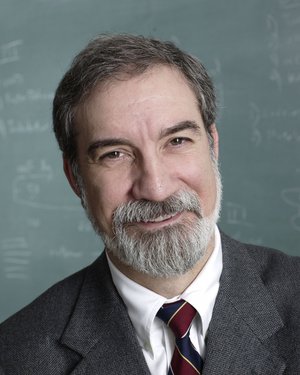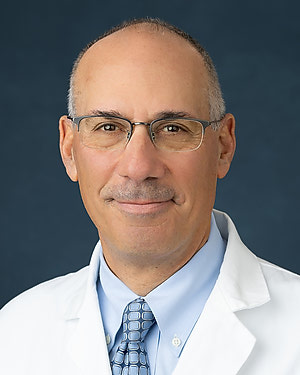Pediatric Hematology Training
Overview
The Clinical Hematology Career Development Program in benign hematology at the Johns Hopkins Medical Institutions (JHMI) is a joint venture of The Johns Hopkins University School of Medicine and The Bloomberg School of Public Health.
Through this program and in conjunction with NHLBI and other K12 programs, we plan to encourage and train the next generation of clinical researchers in benign hematology. In developing this program, we have used established research infrastructure, including free-standing Divisions of Hematology in Pediatrics and Internal Medicine that are dedicated to the care and study of benign hematologic disorders, as well as our Graduate Training Program in Clinical Investigation (GTPCI) at The Johns Hopkins University School of Medicine and The Johns Hopkins University Bloomberg School of Public Health.
Our specific aims are to:
- Identify, train and develop creative and successful clinical investigators, with the capability to interact with, participate in, and lead multidisciplinary teams involved in clinical research, address complex problems and become national leaders in pediatric, adolescent and adult benign hematology
- Provide trainees with the requisite skills, knowledge, attitude and experience for successful careers in clinical research in benign hematology. This training includes exposure to national and international leaders and curriculum in the multiple disciplines necessary for successful clinical research, including benign hematology, clinical trials design, epidemiology, statistics, research ethics and human subjects protection
- Provide a rich mentoring environment. Working with several established investigators and mentors, we have developed a structured curriculum in benign hematology and strong mentored research experiences for trainees. Careful and extensive mentoring is the cornerstone of these efforts, with exposure to cutting edge research experiences.
The Advisors for this program include Dr. Micheal Klag, Dean of The Bloomberg School of Public Health, Dr. N. Franklin Adkinson, Jr., M.D., Professor of Medicine and Program Director of the GTPCI Program, and Dr. George J. Dover, Chair of the Department of Pediatrics, and an internationally known hematologist with a focus on hemoglobinopathies and the biology of fetal hemoglobin, as well as a member of the ASH Clinical Research Training Institute (CRTI) faculty.
The Clinical Hematology Research Career Development Program is targeted to individuals who are in the later stages of fellowship in adult or pediatric hematology or transfusion medicine, or candidates for junior faculty positions (Instructor or Assistant Professor). Candidates from other related disciplines or at other stages of training, including Ph.D.s, will also be considered. Salary support, tuition and limited research support (to a total of $30,000 per year) are provided to the successfully applicant. The program demands a commitment to training and subsequent research in benign hematology; oncologic training is not allowed under this program.
Established Programs, Centers and Areas of Expertise
Programs:
- The Division of Adult Hematology, Department of Medicine
- The Division of Pediatric Hematology, Department of Pediatrics
- The Johns Hopkins Graduate Training Programs in Clinical Investigation (GTPCI). Established in 1993, the GTPCI provides a yearlong didactic curriculum, including courses in project and professional development, followed by at least two years of mentored clinical research leading to thesis publication and the award of either a Sc.M. or Ph.D. degree. Trainees receive training in a broad, tailored curriculum, which includes clinical trials design, epidemiology, statistics and courses in the ethics and responsible conduct of research. Mentored research is conducted under the direction of faculty from this program, with input from outside faculty as needed.
- The McKusick-Nathans Institute of Genetic Medicine, which offers support services to scientists attempting to study diseases of complex genetic origin. The institute has tremendous strengths in the area of genomics, developmental genetics and the genetics of complex diseases.
- The Division of Health Sciences Informatics, an interdisciplinary, academic division in the school of medicine, which integrates a wide range of resources and expertise in health sciences information management, communication and technology.
- The Berman Institute of Bioethics, established in 1995, which promotes research and bioethics at the Johns Hopkins Medical Institutions, incorporating the moral dimensions of the biological, behavioral and social sciences and health policy into the milieu of clinical practice and research.
Centers:
- The Johns Hopkins Bloomberg School of Public Health, the world's oldest school of public health, encompassing nine departments, including biostatistics, epidemiology, biochemistry and molecular biology, environmental health sciences, health policy and management, international health, mental health, molecular microbiology and immunology and population and family health sciences.
- The Maryland Hemophilia Treatment Center, directed by James F. Casella, M.D.
- The Johns Hopkins Bone Marrow Transplant Unit
Areas of expertise:
- Sickle cell disease
- Bone marrow failure and stem cell biology
- Myeloproliferative disorders
- Transfusion medicine
- Outcomes research
- Proteomics
- Genetics
- Cancers of the blood (aplastic anemia, types of leukemia) are treated in the Sidney Kimmel Comprehensive Cancer Center at Johns Hopkins.
Institutional Resources
- Center for Inherited Disease Research a centralized facility that provides genotyping and statistical genetics services for investigators seeking to identify genes that contribute to human disease.
- Genetic Resources Core Facility
- Welch Medical Library
- The Welch Center for Prevention, Epidemiology and Clinical Research, a multidisciplinary research center affiliated with the Johns Hopkins School of Medicine and Bloomberg School of Public Health, which promotes the health of the public by generating the knowledge required to prevent disease and its consequences.
Length of Support for Scholars
Two to three years, tailored to the needs of the candidate
Current Scholar
William Savage, M.D., postdoctoral student, Transfusion Medicine and Pediatric Hematology, first-year trainee in the Graduate Training Program in Clinical Investigation.
Download APPLICATION (Adobe Acrobat .pdf)
Program Coordinator
Phyllis CrockettDivision of Pediatric Hematology
Ross Research Building, Room 1125
720 Rutland Ave
Baltimore, MD 21205
Phone: 410-955-6132
Fax: 410-955-8208



